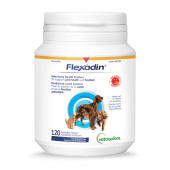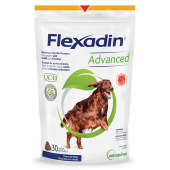Dog parks are the canine equivalent of schoolyards. They’re a safe place where dogs can socialize, exercise, have fun and run free with adequate supervision. But when dog owners don’t pay attention, bullies, misunderstandings and conflicts may ruin the day.
Benefits of dog parks
If you live in a condo or an apartment without a yard, dog parks may be one of the rare outdoor locations where your dog can play to their heart’s content without a leash. Regular physical activity plays an essential role in helping your dog stay healthy and manage their weight. Many dog parks also become social centres where dog owners gather to chat and meet new people.
Dog park hazards
The lack of supervision by some dog owners and the wide variety of sizes and temperaments among dogs also present many challenges.
Distractions and disobedience
Between being off leash, let loose among unknown dogs and their owners, and in a new environment full of unfamiliar smells, sights and sounds, there’s a lot your dog needs to process. With so many distractions, they may completely ignore you calling them—a behaviour that may worsen over time.
Tips for dog owners
Make sure your dog is properly trained and responds to basic commands such as “sit” and “come” before taking them to a dog park.
Conflicting dog play styles
Some dogs are happy just to play “fetch,” while others enjoy chasing or wrestling with fellow canines. When pets of conflicting play styles meet, misunderstanding and even fights may occur. A tiny Yorkshire Terrier may feel threatened by a much bigger Labrador who’s “only playing.” If an owner doesn’t intervene, the smaller dog may grow fearful of larger breeds, while the larger one may repeatedly bully weaker dogs.
Tips for dog owners
Pay attention to your dog’s play style. Interrupt them if they need to be calmed down. Leave if they seem to be afraid or bullying others.
Dog owners misinterpreting dog behaviour
If a dog doesn’t want to play when another one approaches energetically, they may growl or snarl to send a warning. Humans may misinterpret this as a sign of aggression and punish the animal for doing so, or call out their owner. Through their intervention, dog owners may disrupt both animals’ learning processes. One dog could come to the conclusion that they shouldn’t give out warning signals (and maybe jump straight to aggression), while the second one may not learn to calm down when approaching other dogs.
Tips for dog owners
Read our articles on dog behaviour to achieve a better understanding of how your dog acts and reacts.
Ticks, parasites and contagious diseases
Depending on your area, being outdoors and in close proximity to other dogs could expose your pet to a variety of parasites such as fleas, ticks, mites and worms. After every play session at the dog park, check your dog—especially around their ears and between their toes—to make sure you’re not bringing unwanted guests inside your home.
Tips for dog owners
Make sure your dog is properly vaccinated and has adequate parasite protection before taking them to the dog park. If they’re sick or recovering from treatment or a veterinary intervention, keep them at home.
Is your dog fit for dog parks?
Going to the dog park isn’t mandatory! If your dog is too shy, too frantic, too defensive or doesn’t seem to enjoy other dogs’ company, there are many other ways to keep them active. Walk your dog, make them your workout partner, play indoor games or create your own backyard obstacle course.






